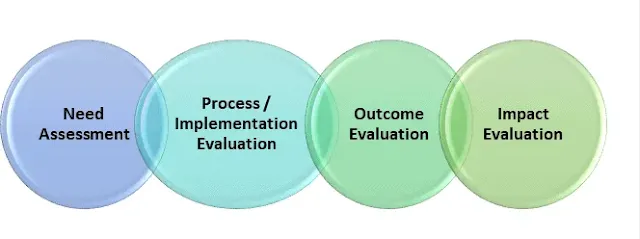A well-functioning health system is fundamental to the health and well-being of individuals and communities. It is a dynamic and interconnected network of organizations, institutions, professionals, and resources working together to deliver quality healthcare services. To ensure the effectiveness of these systems, it is imperative to have robust monitoring and evaluation (M&E) processes in place. M&E has the power to enhance health systems by identifying strengths, weaknesses, and areas in need of improvement.
Monitoring and evaluation in health systems involves the systematic collection, analysis, and interpretation of data to measure the performance, outcomes, and impact of healthcare interventions, policies, and programs. It provides valuable insights into the strengths and weaknesses of the system, allowing policymakers, program managers, and healthcare professionals to make evidence-based decisions and drive positive change.
The power of effective monitoring and evaluation lies in its ability to provide valuable information on various aspects of the health system. Firstly, it helps assess the accessibility and availability of healthcare services. By monitoring indicators such as geographical coverage, waiting times, and availability of essential medicines, health systems can identify underserved areas or populations and take necessary steps to address these gaps.
Secondly, monitoring and evaluation enable the assessment of service quality and patient satisfaction. Through patient feedback surveys, observational audits, and quality assessments, health systems can determine whether services meet established standards and identify areas for improvement. This continuous monitoring of quality promotes patient-centered care and ensures that services are safe, effective, and responsive to the needs of the population.
Moreover, effective M&E can enhance the efficiency and cost-effectiveness of health systems. By tracking indicators such as healthcare utilization rates, resource allocation, and health expenditure, health systems can identify inefficiencies, redundancies, or inequitable distribution of resources. This information helps in optimizing resource allocation, improving cost-effectiveness, and ensuring that resources are directed towards areas with the highest impact.
Furthermore, monitoring and evaluation play a crucial role in tracking health outcomes and the impact of interventions. By monitoring health indicators such as mortality rates, disease prevalence, and key performance indicators, health systems can measure progress towards desired outcomes. This enables them to identify successful interventions, replicate best practices, and make evidence-based decisions on allocating resources to achieve the greatest impact on population health.
Effective M&E also fosters transparency, accountability, and learning within health systems. By regularly reporting findings and sharing data with stakeholders, health systems promote transparency and build trust among the public, healthcare providers, and policymakers. Additionally, M&E allows health systems to be accountable for their performance, aligning efforts with national health priorities and international standards. Monitoring and evaluation also provide a platform for learning and knowledge exchange, allowing healthcare professionals and policymakers to share experiences, lessons learned, and best practices.
To ensure the power of monitoring and evaluation is harnessed fully, health systems must have strong institutional capacity and a supportive environment. This includes having trained personnel with expertise in data collection, analysis, and interpretation, as well as appropriate data management systems and infrastructure. Stakeholder engagement is also essential, involving active participation and collaboration between policymakers, program managers, healthcare professionals, and communities.
In conclusion, enhancing health systems requires effective monitoring and evaluation. Through the systematic collection and analysis of data, monitoring and evaluation provide crucial insights into the functioning of health systems. From evaluating accessibility and quality to optimizing resource allocation and tracking health outcomes, monitoring and evaluation informs evidence-based decision-making and promotes continuous improvement. By harnessing the power of effective monitoring and evaluation, health systems can achieve their ultimate goal of providing high-quality, accessible, and equitable healthcare services for all.


Post a Comment
Full Name :
Adress:
Contact :
Comment: